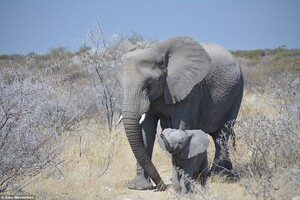Researchers believe that it is too early to worry.

Climate scientist Kunio Kaiho from Tohoku University in Japan said that the sixth mass extinction in the history of the Earth cannot be compared with the previous ones. In any case, it will not be so during the coming centuries, reports Science Alert.
Over the past 540 million years, our planet has repeatedly lost most of its species diversity in a relatively short period of time. Such events are called mass extinctions and often follow global climate changes, cooling or warming.
Read also: Warming of the Earth's climate is not only a consequence of human activity – research
In the course of the study, Caiho attempted to quantify the relationship between the Earth's average temperature and the planet's biodiversity. As a result, he found out that there is a linear relationship. The more the temperature changes, the greater the change in biodiversity.
When it comes to global cooling, the biggest extinctions occurred when temperatures dropped by about seven degrees Celsius. If we were talking about global warming, the largest extinctions occurred when the temperature rose by nine degrees Celsius.
This is much higher than previous estimates, which suggested that a temperature increase of 5.2 degrees Celsius would lead to a mass extinction of marine life. According to current estimates, the temperature on Earth may rise by 4.4 degrees Celsius by the end of the century.
“Global warming of 9°C is not expected in the Anthropocene until at least the year 2500 under the worst-case scenario,” predicts Kaiho.
At the same time, the scientist does not deny that the extinction of animals on land and in water is already happening, but notes that the pace and scale of this extinction cannot be compared with the previous ones.
But still, it is not only the increase in temperature that leads to extinction, but also the speed with which it occurs. The most massive extinction on Earth, which occurred 250 million years ago, led to the disappearance of 95% of species and lasted more than 60 thousand years. But warming is happening much faster today because of anthropogenic emissions.
It is likely that more species will disappear in the sixth extinction, not because the scale of warming is so great, but because temperatures are rising so fast. Because of this, species do not have time to adapt.
“Predicting the scale of future anthropogenic extinction using only surface temperature is difficult, because the causes of anthropogenic extinction are different from the causes of mass extinctions in geological time,” Kaihu admits.
Related videoRecall that data from the European Copernicus satellite system showed that the last seven years were the hottest in the history of observations. Last year, 2021, became the fifth in the list of hottest years, temperature records were registered in some regions.




